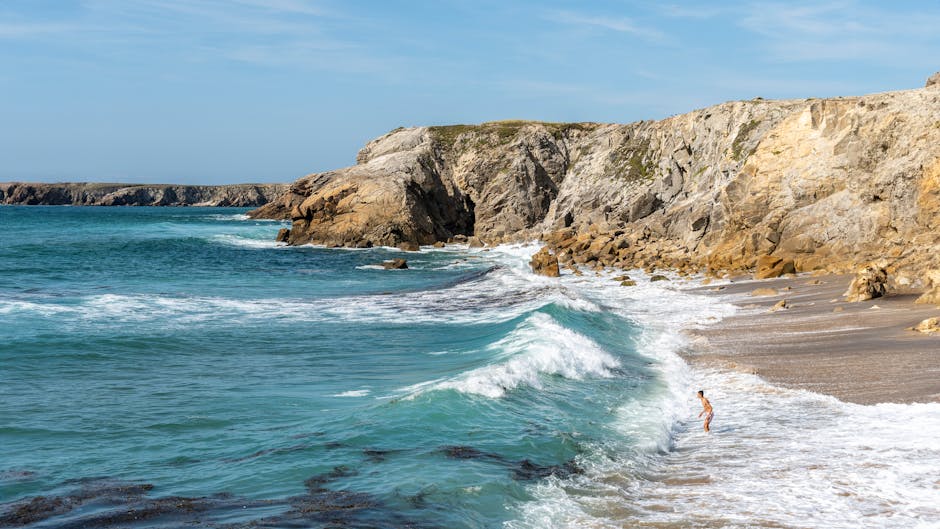5 Tips for Stress-Free Vacation Management for Your Rental Property
Introduction to Vacation Management
Managing a vacation rental can seem like a daunting task, but it doesn’t have to be. Think of it as preparing your home for a friend. You want everything to be perfect, but you also don’t want to stress yourself out. First, understand what vacation management involves – it’s all about ensuring your guests have a seamless and enjoyable stay, from the moment they book to the time they leave. This includes making sure your property is clean, well-maintained, and stocked with the essentials. Also, being available or having someone ready to assist with any issues that arise during their stay is crucial. Remember, happy guests leave glowing reviews, which can lead to more bookings. Keep things simple, stay organized, and always aim to provide a memorable experience for your guests.
Tip 1: Automate Your Bookings and Payments
Make your life easier by automating your bookings and payments. This way, you won’t have to spend all day stuck on your phone or computer, managing inquiries and transactions. Use online platforms that take care of these tasks for you. This includes scheduling guests, accepting payments, and sending out booking confirmations automatically. Not only does this save you a ton of time, but it also cuts down on mistakes. Imagine not having to worry about double bookings or missed payments ever again. Plus, your guests will appreciate the smooth and easy process, making them more likely to come back. Automation is your friend here. Trust it to keep things running smoothly while you focus on making your rental property the best it can be.
Tip 2: Hire a Local Property Manager
Hiring a local property manager can take a massive load off your shoulders. Think about it: who better to handle the day-to-day operations of your rental than someone who knows the area inside out? They can deal with guests face-to-face, solve any issues quickly, and even recommend the best local spots to enhance your guests’ stay. Sure, they’ll take a cut of your earnings, but consider it an investment. By keeping your property in top shape and your guests happy, they’re essentially ensuring your rental’s success. And let’s face it, peace of mind and satisfied guests are worth every penny.
Tip 3: Implement a Seamless Check-In and Check-Out Process
Make check-in and check-out as easy as pie. This not only cuts down on the hassle for your guests but also saves you a ton of time in the long run. First, consider a keyless entry system. Guests receive a code before arrival, punch it in, and voila, they’re in. No more missing key dramas. For check-out, a simple “leave the key on the counter and make sure the door is locked” instruction works wonders. Also, give clear instructions for both processes in a welcome manual. It should include Wi-Fi passwords, emergency contacts, and how to use appliances. This clarity upfront means fewer panicked calls to you and a smoother stay for your guests. Remember, the goal is to make their entrance and exit as smooth as a hotel stay, with the personal touch of a rental.
Tip 4: Ensure Thorough Cleaning and Maintenance
No one wants to spend their vacation in a dirty place. It’s simple. Make sure your rental property is clean and everything works how it should. This means doing a deep clean before guests arrive. Hire professionals if you need to. It’s worth it. Also, fix broken stuff – leaky faucets, wobbly tables, burnt-out light bulbs. Walk through the property yourself. Think like a guest. Would you be happy staying here? Regular cleaning and maintenance stop small problems from turning into big ones. And believe me, guests notice these things. Happy guests leave good reviews. Good reviews mean more bookings. It’s a cycle. Keep your property in top shape, and you’re on your way to stress-free vacation management.
Tip 5: Utilize Smart Technology for Efficient Management
Embrace smart technology to streamline your rental property management. Install smart locks for secure and keyless entry, letting guests check in and out without hassle. Use smart thermostats to keep energy bills low and ensure guest comfort. Consider smart security cameras for safety, but respect privacy laws. Smart devices can also alert you to maintenance needs, ensuring quick fixes. This approach not only saves time and reduces stress but also enhances the guest experience, making your property more attractive. Remember, happy guests are more likely to leave positive reviews and return.
Benefits of Stress-Free Vacation Management
Having a rental property for vacationers can be a great way to earn income, but it often comes with its fair share of stress. Opting for stress-free vacation management offers several benefits that not only make your life easier but also can increase the attractiveness of your property. First, it can significantly boost your rental income. Properties that are well-managed and offer a seamless experience for guests tend to receive better reviews and, therefore, more bookings. Happy guests are likely to come back or recommend your place to others. Second, it saves you a tremendous amount of time. Instead of dealing with the day-to-day operations, you can focus on other areas of your life or business, knowing that your property is in good hands. Third, it helps maintain your property at a high standard. Professional vacation management services include regular maintenance and cleaning, which means your property stays in top shape and small problems are fixed before they become bigger and costlier. Lastly, it provides peace of mind. Knowing that experienced professionals are handling any issues that may arise, from guest communications to emergency repairs, can relieve the burden of constant worry. So, considering stress-free vacation management can not only enhance your guests’ experience but also make your role as a property owner much more enjoyable and profitable.
Common Challenges in Vacation Management and How to Overcome Them
Managing a vacation rental can feel like juggling. Guests expect top-notch service, and as the manager, it’s your job to deliver. Let’s dive right into the common challenges you might face and how to tackle them head-on. First off, communication is key. Sometimes, guests might have special requests or run into issues during their stay. Always be available or have a system in place (like a dedicated phone line or messaging app) so they can reach you easily. Next, cleanliness and maintenance can make or break your rental’s reputation. No one wants to vacation in a place that’s not up to par. Schedule regular cleanings and conduct maintenance checks between bookings. It keeps those 5-star reviews coming. Another hiccup can be overbooking. To avoid this mess, use a reliable booking system that syncs across all platforms your property is listed on. It saves you the headache of double bookings and unhappy guests. Also, security is non-negotiable. Invest in secure locks and maybe even a security system. It’s peace of mind for you and your guests. Lastly, there’s the legal side to think about. Know your local laws regarding vacation rentals. It might be taxes, licenses, or regulations. Staying informed and compliant keeps you out of hot water. In short, manage these challenges proactively, and your vacation rental will thrive. Remember, a smooth operation leads to happy guests and stellar reviews.
Incorporating Guest Feedback for Continuous Improvement
Listening to your guests is key. When they leave feedback, positive or negative, it’s like gold dust for improving your rental. Start by encouraging them to give their thoughts after their stay. Use a simple feedback form or an online platform connected to your rental listing. When you get this feedback, read it carefully. Praise? Great, keep doing those things. Complaints? Don’t take them personally. Instead, see them as a clear path to making your place better. Got a note about a squeaky bed or a slow WiFi? Fixing these things can turn future reviews from okay to outstanding. And always, always respond to the feedback. A simple “Thanks for your suggestion, we’ve now upgraded our WiFi” can show potential guests that you’re attentive and committed to quality. Make improvements a regular part of your routine; this will ensure your rental stands out and keeps guests coming back.
Conclusion: Enjoying the Perks of Your Rental Property
Owning a rental property for vacationers brings its own set of joys and challenges. The key to truly enjoying the perks of your rental property lies in how effectively you manage it. Remember, a well-managed property not only ensures happy vacationers but also translates into a stress-free experience for you. Good management involves screening your guests, staying on top of maintenance, and being clear about your house rules. By implementing the five tips we discussed, you’ll be equipped to handle whatever comes your way, making sure your property remains a prime spot for both you and your guests. So, take a moment to appreciate the extra income and the opportunity to provide a memorable experience for vacationers. With the right approach, the rewards of owning a vacation rental property can far outweigh the efforts.




